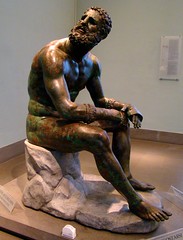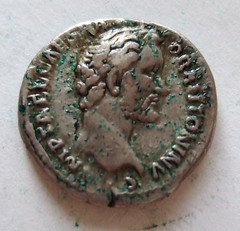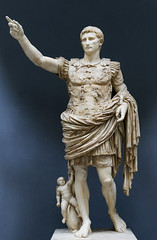| 7563931078 | State | A politically organized body of people usually occupying a definite territory | | 0 |
| 7563931079 | Empire | A political unit having a great extent of territories or people under a single authority | | 1 |
| 7563934119 | Religion | The belief in and worship of a superhuman controlling power, especially a personal God or gods. | | 2 |
| 7563935717 | Belief System | A set of principles or tenets which together form the basis of a religion, philosophy, or moral code. | | 3 |
| 7563937477 | Condification | The act,process,or result of arranging in a systematic form or code. | | 4 |
| 7563938675 | Monotheism | Religion that believes in one God | | 5 |
| 7563938676 | Judaism | is an ancient monotheistic Abrahamic religion with the Torah as its foundational text | | 6 |
| 7563940646 | Hebrew Scripture | The codification further associated Judaism with monotheism. Influenced the cultural and legal traditions of Mesopotamia. | | 7 |
| 7563941993 | Assyrian Empire | Empire that, during its high point (8th and 7th centuries bce), embraced not only Mesopotamia but also Syria, Palestine, much of Anatolia, and most of Egypt. | | 8 |
| 7563946793 | Babylonian Empire | An ancient empire of Mesopotamia in the Euphrates River valley. It flourished under Hammurabi and Nebuchadnezzar II but declined after 562 B.C. and fell to the Persians in 539 | | 9 |
| 7563946794 | Roman Empire | Period from 507 to 31 B.C.E . An empire established by Augustus in 27 BC and divided in AD 395 . significance- at its peak lands in Europe and Africa and Asia were ruled by ancient Rome. | | 10 |
| 7563949795 | Jewish Diasporic Communities | Jews spread from Israel to western Asia and Mediterranean lands in antiquity. | | 11 |
| 7563951621 | South Asia | |  | 12 |
| 7563971015 | Sanskrit Scriptures | A Hindu scripture; Hindus have more than one scripture | | 13 |
| 7563955708 | Caste System ( South Asia) | A system of classes that were used in Indian Civilization | | 14 |
| 7563968351 | Vedic Religions ( Hinduism) | The religion of the Indo-Aryans of northern India during the Vedic period | | 15 |
| 7563963306 | Reincarnation | The rebirth of a soul in a new body. | | 16 |
| 7563964831 | Brahma | Priest of Hinduism, they were considered the topmost on the caste ladder | | 17 |
| 7563964832 | Multiple Manifestations of Brahma | The importance of many manifestations of Brahma to influence reincarnation and karma | | 18 |
| 7563989083 | Buddha ( desire,suffering, & enlightenment) | Creator of Buddhism | | 19 |
| 7563989084 | Sutras | Have only one birth. The only occupation the lord prescribed to them was to serve the other three castes. | | 20 |
| 7563991400 | Mauryan Emperor Ashoka | An Indian emperor of the Maurya Dynasty, who ruled almost all of the Indian subcontinent from c. 268 to 232 BCE. He was violent and short tempered, killed his 6 Brothers to capture the throne. | | 21 |
| 7563995243 | Buddhism | A religion of eastern and central Asia growing out of the teaching of Siddhārtha Gautama that suffering is inherent in life and that one can be liberated from it by cultivating wisdom, virtue, and concentration. | | 22 |
| 7563997376 | Buddhist Monasteries ( monastic life) | A community of men or women (monks or nuns), who have chosen to withdraw from society, forming a new community devoted to religious practice. | | 23 |
| 7564000222 | Confucianism | The system of ethics, education, and statesmanship taught by Confucius and his disciples, stressing love for humanity, ancestor worship, reverence for parents, and harmony in thought and conduct | | 24 |
| 7564026246 | Confucius | An influential Chinese philosopher, teacher and political figure known for his popular aphorisms and for his models of social interaction | | 25 |
| 7564036722 | Confucian Social Harmony ( proper rituals & relationship ) | The concept of social harmony dates back to ancient China, to the time of Confucius | | 26 |
| 7564037649 | Filial Piety | A virtue of respect for one's parents, elders, and ancestors | | 27 |
| 7564037650 | Daoism | Belief that the world is always changing and is devoid of absolute morality or meaning. They accept the world as they find it, avoid futile struggles, and deviate as little as possible from the Dao, or 'path' of nature. | | 28 |
| 7564065850 | Daoism Balanace Between Humans & Nature | When they reach harmony, the energy of life is created. Someone who understands this point will not exploit nature, but will treat it well and learn from it. | | 29 |
| 7564068653 | Christianity | One of the major world religions, rose during the roman empire but did not come from the roman empire and had regular ceremonies. | | 30 |
| 7564069422 | Jesus of Nazareth | Jesus was raised Jewish ( in Nazareth) and he remained deeply Jewish all of his life. His intention was not to create a new religion. Rather, he saw himself as doing something within Judaism. | | 31 |
| 7564071857 | Christian disciples | People who were pupils of Christianity | | 32 |
| 7564073912 | Hellenistic influences in Christianity | Christianity and Hellenistic philosophy refers to the complex interaction between Hellenistic philosophy and early Christianity during the first to fourth centuries. ... However, as Christianity spread throughout the Hellenic world, an increasing number of church leaders were educated in Greek philosophy. | | 33 |
| 7564100826 | Emperor Constantine | A Christian Roman Emperor; made Christianity the official religion of Rome | | 34 |
| 7564103334 | Christian Monasteries ( monastic life) | Devotional practice of individuals who live ascetic and typically cloistered lives that are dedicated to Christian worship. | | 35 |
| 7564106286 | Greco-Roman Philosophy & Science | Created the basis for the future Western Philosophy and had been the central religious and philosophical system of the western world until the 5th century C.E. It was perceived as humanities first effort to presenting rational explanations for the workings for the world without mythological content or the operation of gods to explain existence | | 36 |
| 7564106299 | Logic | Reasoning conducted or assessed according to strict principles of validity. | | 37 |
| 7564108879 | Empirical Observation | The knowledge received by means of the senses, particularly by observation and experimentation | | 38 |
| 7564111578 | Greco-Roman | Regions and countries that culturally were directly, long-term, and intimately influenced by the language, culture, government and religion of the ancient Greeks and Romans | | 39 |
| 7564200574 | Shamanism | Belief in an unseen world of gods, demons, and ancestral spirits responsive only to the shamans | | 40 |
| 7564118984 | Greek City-States & Colonies , Mediterranean Region | Greek city-state began to look beyond Greece for land and resources, and so they founded colonies across the Mediterranean.First the islands around Greece were colonized.The first colonists in a general sense were traders and those small groups of individuals who sought to tap into new resources and start a new life away from the increasingly competitive and over-crowded homeland. | | 41 |
| 7564166345 | Animism | Belief that objects, such as plants and stones, or natural events, like thunderstorms and earthquakes, have a discrete spirit and conscious life; Most early civilizations believed in Animism | | 42 |
| 7564166346 | Ancestor Veneration | The practice of praying to your ancestors, Found especially in China; There's a heavy influence of Ancestor veneration in Confucianism. | | 43 |
| 7564150696 | Phoenicia & Its Colonies , Mediterranean Region | The prosperity of Phoenician cities were based on trade. The major Phoenician trade routes were by sea to the Greek islands, across southern Europe, down the Atlantic coast of Africa, and up to ancient Britain. | | 44 |
| 7564150695 | Gupta Empire, South Asia | |  | 45 |
| 7564164801 | Persian Empires, Southwest Asia | |  | 46 |
| 7564158842 | Mauryan Empire , South Asia | |  | 47 |
| 7564163581 | Qin Empire , East Asia | |  | 48 |
| 7564160959 | Han Empire , East Asia | |  | 49 |
| 7564253642 | Hellenistic Empire, Mediterranean & Mid-East Regions | The Hellenistic period covers the period of Mediterranean history between the rise of Alexander the Great in 336 BC and the emergence of the Roman Empire as signified by the Battle of Actium in 31 BC and the subsequent conquest of Ptolemaic Egypt the following year. | | 50 |
| 7564207338 | Currency | A system of money in general use in a particular country. | | 51 |
| 7564249968 | Roman Empire , Mediterranean Region | The major centres of the Mediterranean at the time became part of Alexander's empire as a result. His empire quickly disintegrated, and the Middle East, Egypt, and Greece were soon again independent. Alexander's conquests spread Greek knowledge and ideas throughout the region. | | 52 |
| 7564211140 | Imperial bureaucracy | Division of an empire into organized provinces to make it easier to control | | 53 |
| 7564248202 | Teotihuacan , Mesoamerica | An ancient Mesoamerican city located in a sub-valley of the Valley of Mexico, located in the State of Mexico 40 kilometres (25 mi) northeast of modern-day Mexico City, known today as the site of many of the most architecturally significant Mesoamerican pyramids built in the pre-Columbian Americas. | | 54 |
| 7564220431 | Centralized Governments | Is one in which power or legal authority is exerted or coordinated by a de facto political executive to which federal states, local authorities, and smaller units are considered subject. | | 55 |
| 7564246331 | Maya City-States, Mesoamerica | |  | 56 |
| 7564223174 | Cahokia, North America | United States' oldest civilization |  | 57 |
| 7564234275 | Moche, Andean South America | |  | 58 |
| 7564225086 | Chaco, North America | |  | 59 |
| 7564290521 | Diplomacy | The profession, activity, or skill of managing international relations, typically by a country's representatives abroad. | | 60 |
| 7564262258 | Trans-Saharan Caravan Routes | |  | 61 |
| 7564288727 | Successor States To Empires | Succession of states is a theory and practice in international relations regarding successor states. A successor state is a sovereign state over a territory | | 62 |
| 7564266487 | Eurasian Silk Roads | |  | 63 |
| 7564277029 | Long- Distance Trade | When two civilizations that are far apart from each other start trading resources back and forth whether its food , tools, religion , etc. | | 64 |
| 7564268755 | Oceania | |  | 65 |
| 7564272564 | Eastern Hemisphere | |  | 66 |
| 7564268756 | Disease Pathogens | Physical, chemical, or biological factors that can cause disease. | | 67 |
| 7564270925 | The Americas | North & South America |  | 68 |
| 7564307089 | Indian Ocean Sea Lanes | |  | 69 |
| 7564293580 | East Africa | |  | 70 |
| 7564304020 | Mediterranean Sea Lanes | |  | 71 |
| 7564293581 | East Asia | |  | 72 |
| 7564301812 | Domesticated Pack Animals | Animals that were trained for human uses included camels, the yak, reindeer, goats, water buffalo and llama, and domesticated members of the horse family including horses, donkeys and mules. | | 73 |
| 7564296200 | Monsoon Winds | The seasonal wind of the Indian Ocean and southern Asia, blowing from the southwest in summer and from the northeast in winter | | 74 |
| 7564298854 | Maritime Technologies from 600BCE-600CE | New technologies like yolks, saddles or stirrups let the use of domesticated animals . | | 75 |





















































































